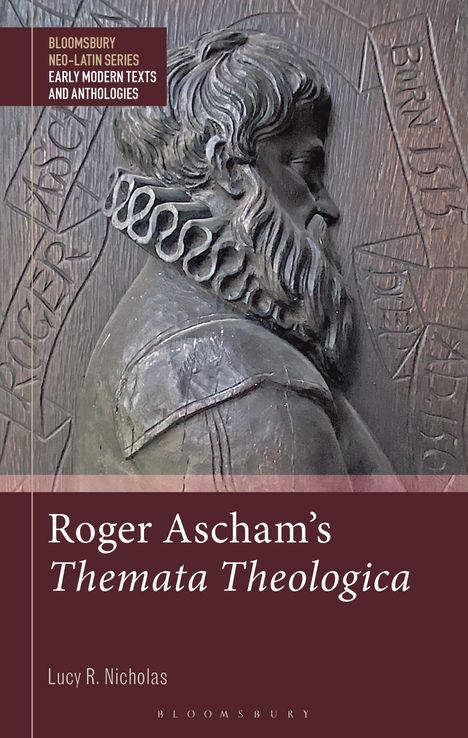Lucy R Nicholas: Roger Ascham's Themata Theologica
Roger Ascham's Themata Theologica
Buch
Artikel noch nicht erschienen, voraussichtlicher Liefertermin ist der 20.3.2025.
Sie können den Titel schon jetzt bestellen. Versand an Sie erfolgt gleich nach Verfügbarkeit.
Sie können den Titel schon jetzt bestellen. Versand an Sie erfolgt gleich nach Verfügbarkeit.
EUR 57,46*
- Herausgeber:
- Gesine Manuwald, Stephen Harrison, William M Barton, Bobby Xinyue
- Verlag:
- Bloomsbury Academic, 03/2025
- Einband:
- Kartoniert / Broschiert
- Sprache:
- Englisch
- ISBN-13:
- 9781350267930
- Artikelnummer:
- 11424534
- Umfang:
- 264 Seiten
- Gewicht:
- 454 g
- Maße:
- 216 x 138 mm
- Stärke:
- 25 mm
- Artikelnummer:
- 11424534
- Erscheinungstermin:
- 20.3.2025
- Hinweis
-
Achtung: Artikel ist nicht in deutscher Sprache!
Weitere Ausgaben von Roger Ascham's Themata Theologica |
Preis |
|---|
Klappentext
Roger Ascham is often classified as 'a great mid-Tudor humanist' and he is perhaps best known for his role as tutor to Elizabeth I. His most famous works, The Scholemaster and Toxophilus, have been extensively quarried and anthologised in studies on prose style and English humanism. By contrast, his Neo-Latin works that engaged with theology and key Reformation concerns have languished in the shadows of modern scholarship. Ascham's Themata Theologica ('Theological Topics') is one of these, and its content has the potential to open up many an investigative avenue into the intellectual and religious culture of the sixteenth century. This is the first volume to offer a corresponding English translation.The Themata can be dated to the early to mid- 1540s, and was composed by Ascham while still at Cambridge University and serving as a senior fellow at St John's College. The work mainly comprises a compendium of relatively short commentaries on Scriptural verses (both Old and New Testament), many of which developed into expositions on difficult philosophical concepts, such as the notion of felix culpa (literally, 'happy fault') and some of the most intractable theological questions of the day, including the nature of sin, adiaphora ('matters of indifference'), justification and free will. This little-known text offers a rare opportunity to trace the course of Ascham's own religious maturation, but also offers fresh insights into the confessional climate at Cambridge University during one of the most turbulent periods of the Reformation in England.


